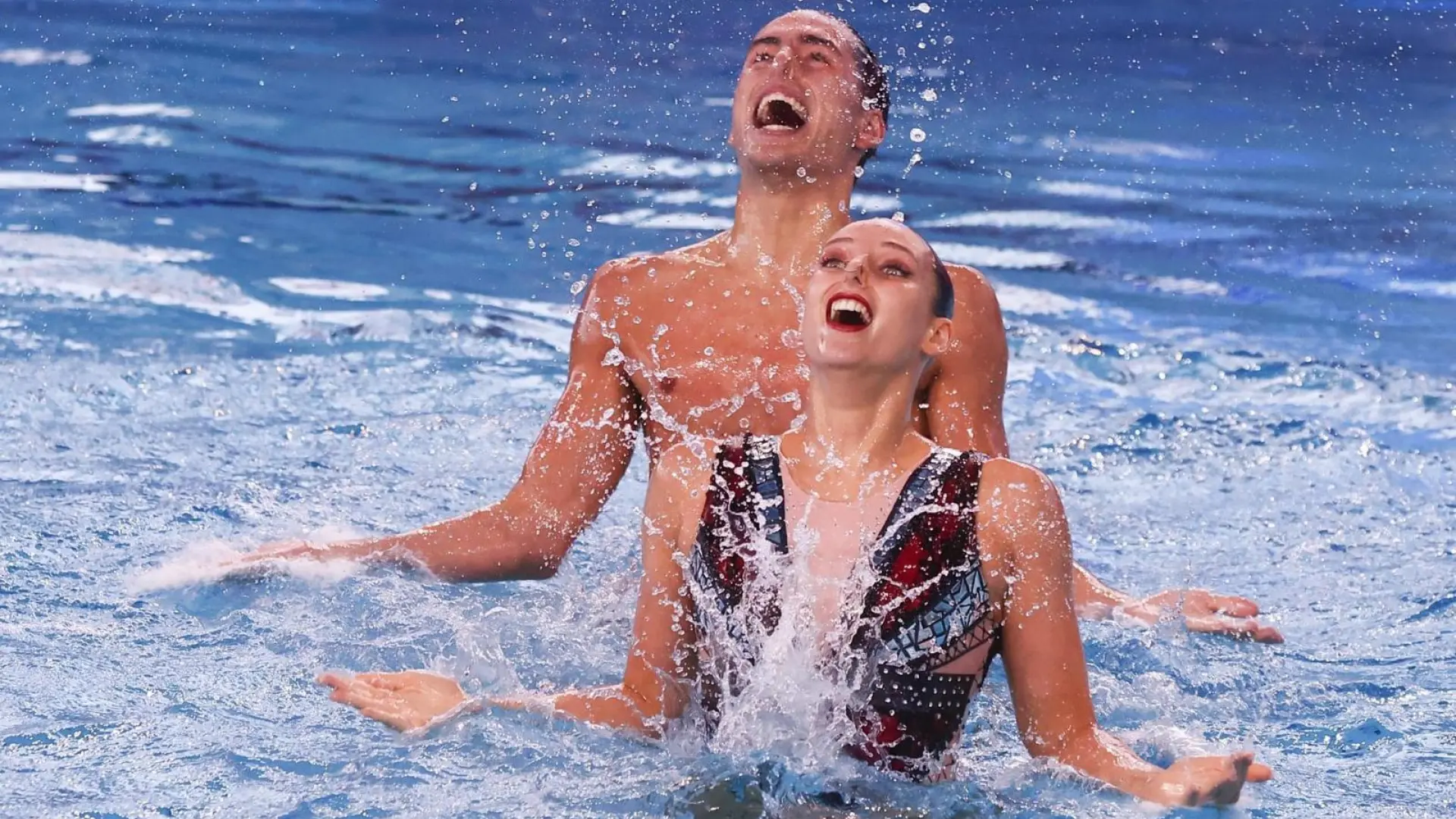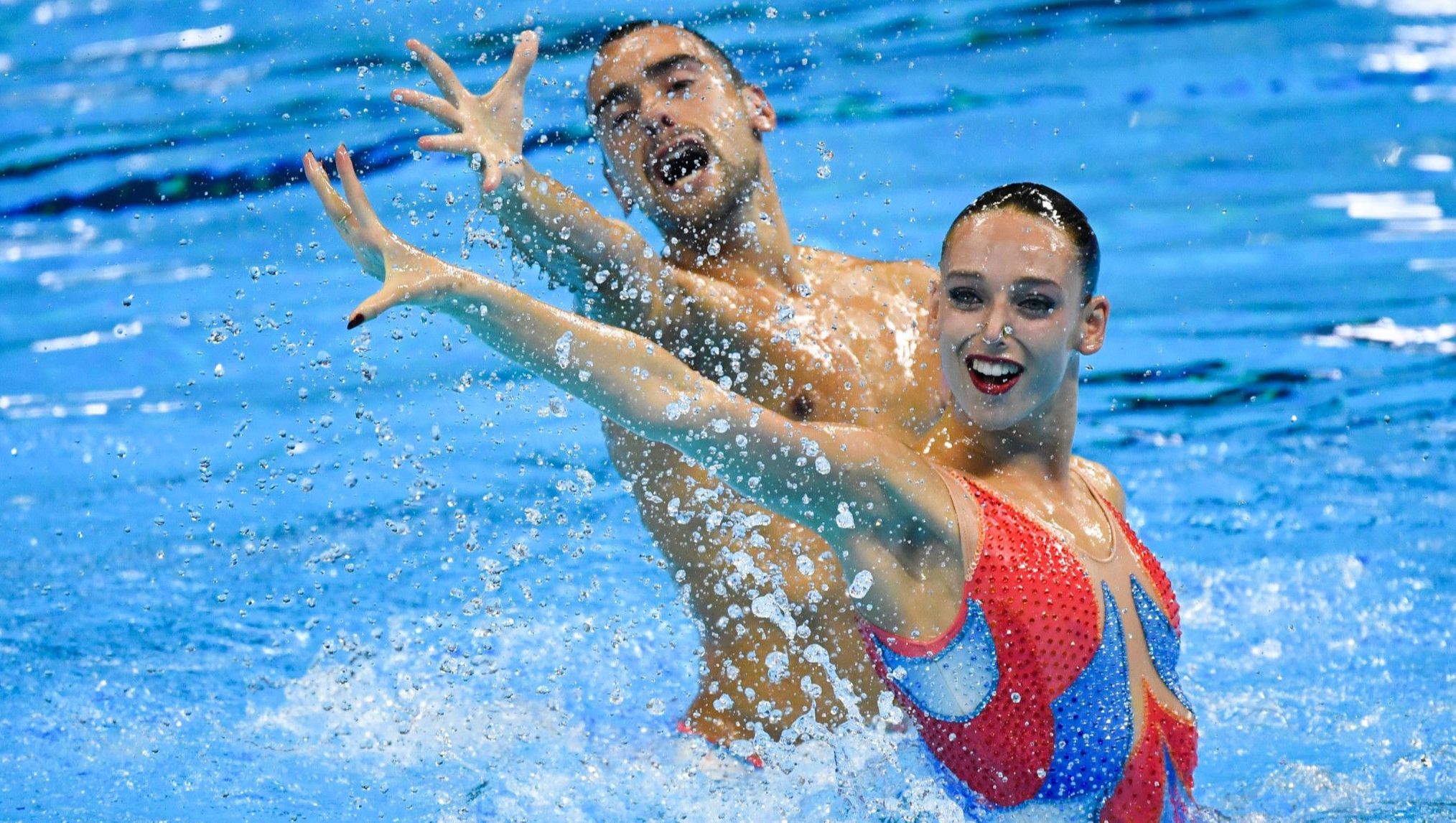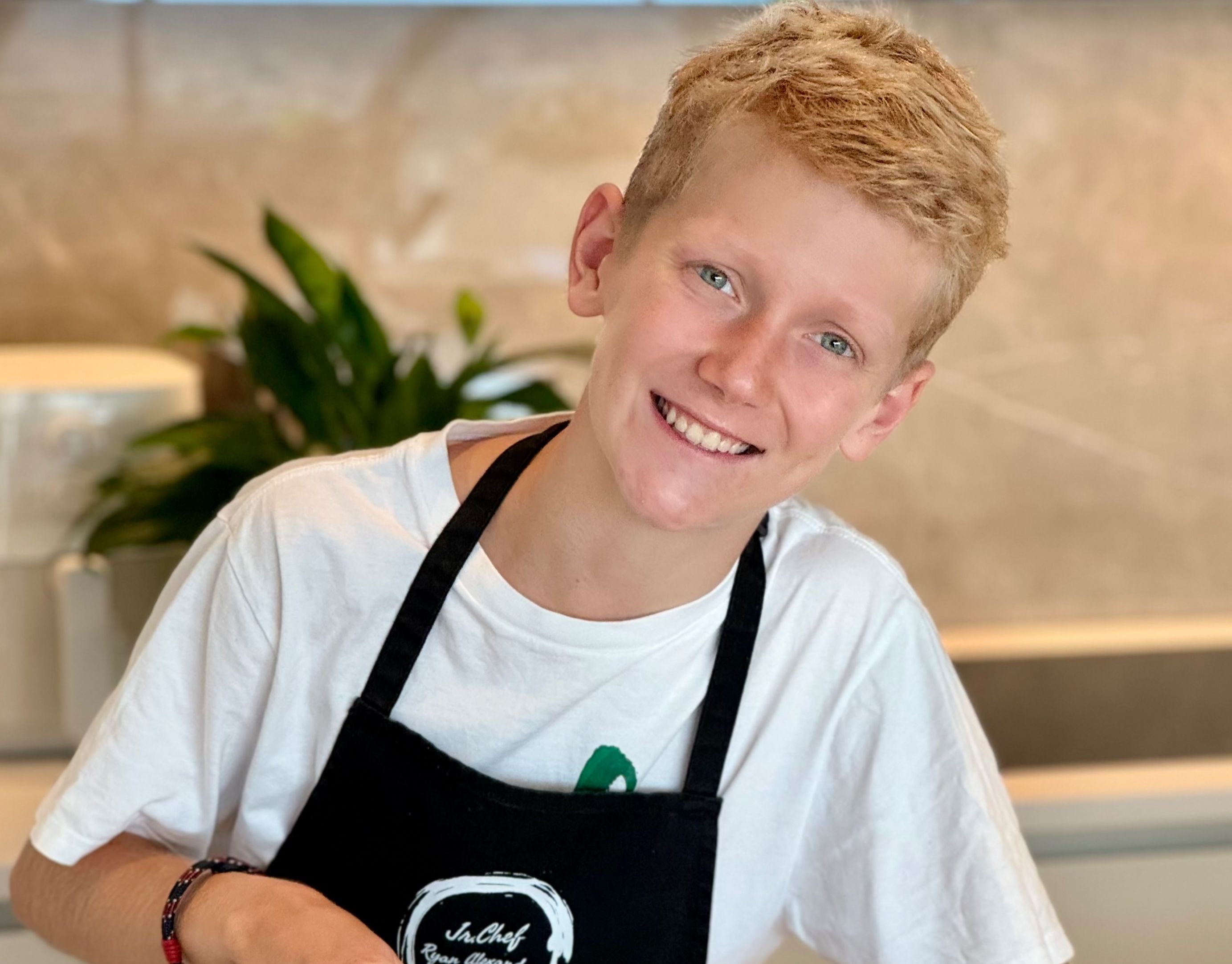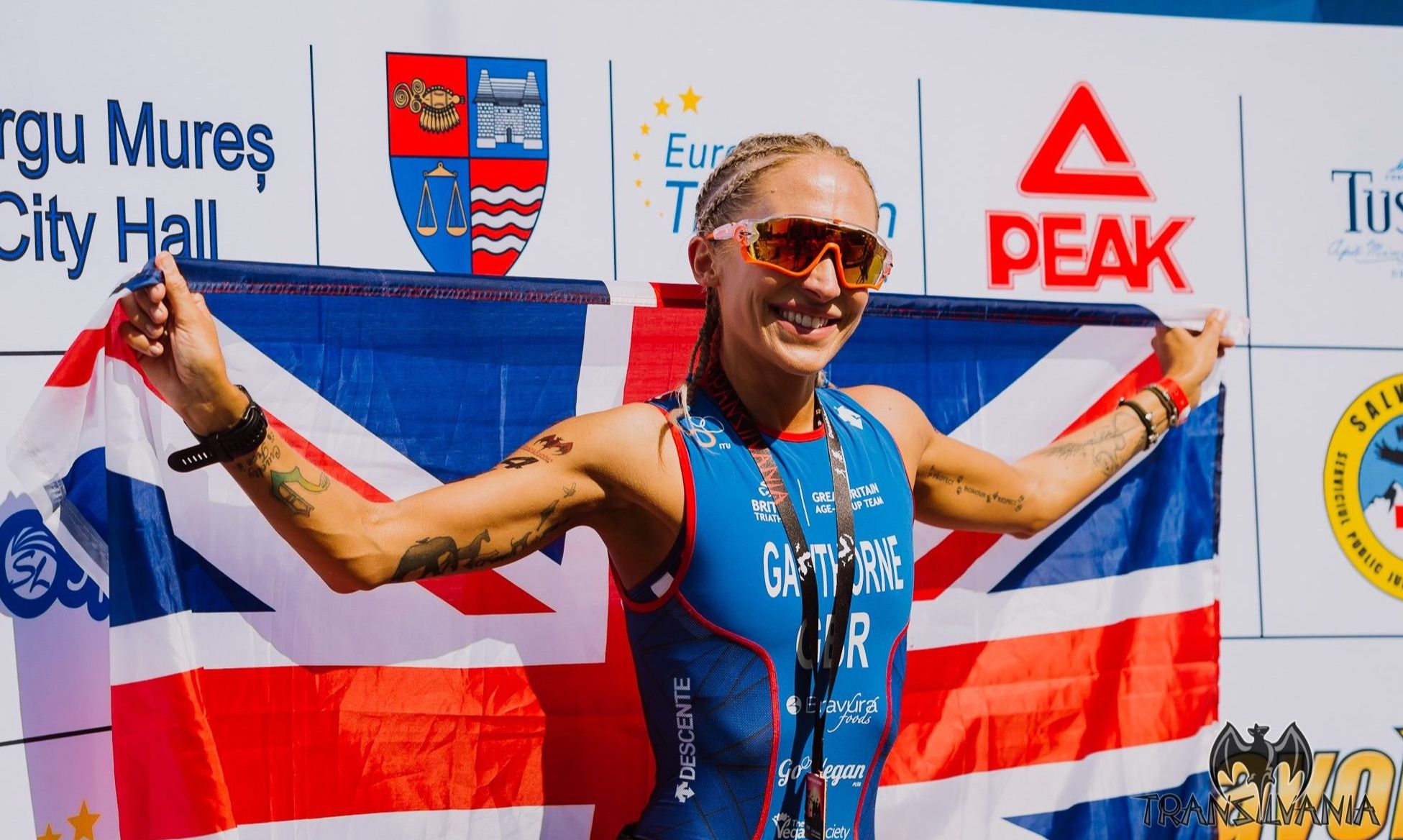
In this conversation, we speak with a remarkable athlete who recently clinched gold at the World Cup in Budapest—Emma Garcia, achieving a new personal best score of 213. Renowned for her vibrant routines that expertly combine technique and artistry, she continues to push the boundaries of artistic swimming.
Beyond the pool, her adoption of a vegan lifestyle has reshaped both her performance and personal values. Here, she reflects on her record-breaking win, the delicate balance between technical precision and creative expression and how veganism has transformed her life and athletic career.
VegClub (VC): Congratulations on your gold medal at the World Cup in Budapest! How did it feel to achieve such a significant personal best score of 213, well above the previous record?
Emma Garcia (EG): Securing that higher score was a fantastic achievement, finally performing with such clarity and perfection. Ending the season with the best score was truly rewarding, as it reflected our progress across the competitions. We were overjoyed and deeply moved, especially as it was my final competition.
VC: Your routines are known for their energy and artistry. How do you balance the technical demands of artistic swimming with the need to create a visually captivating performance?
EG: With the new regulations, we need to prioritise the technical and difficulty elements since they now play a significant role in the scoring. However, we remain committed to maintaining the artistic flair that defines Spanish routines, striking a balance between the two to achieve even higher scores. It’s a challenge to incorporate the required difficult moves while keeping that artistic touch, but it’s what makes this sport so captivating for both audiences and judges.
VC: You mentioned that avoiding the ‘basemark’ was a key part of your strategy in this competition. Can you explain what a basemark is and how it impacts your performance?
 Emma Garcia/Getty Images
Emma Garcia/Getty Images
EG: A basemark is currently the most daunting aspect of our routines. At the beginning of the competition, our coaches submit a ‘coach card’ outlining every element of our choreography. We must detail each hybrid—leg movements, where every action is described and scored—for example, a 360-degree rotation with one leg high in a vertical position is worth +0.60 points. However, if any part of a hybrid is poorly executed, even a single movement, we receive a basemark—essentially reducing a high-value hybrid to just 0.5 points, drastically lowering our overall score. It can easily cost us a medal.
VC: Transitioning to a vegan lifestyle in 2021, what were some of the biggest challenges you faced as an athlete and how did you overcome them?
EG: The most difficult aspect was finding suitable options, especially protein sources, in other countries during competitions. On occasion, I had to visit local supermarkets to ensure I could maintain a balanced diet, rather than just eating vegetables or pasta. However, I didn’t face any issues transitioning at my training centre or at home. I was well-supported and with proper information, I managed the change without any nutritional deficiencies. It was crucial for me to maintain my energy and performance levels during intense training sessions that can last up to eight hours a day.
“It was the best decision I could have made. It has given me strength and helped me align my values.” about her becoming vegan
VC: How has your vegan diet influenced your training and performance in artistic swimming? Have you noticed any changes in your energy levels or recovery times?
EG: Thankfully, I experienced significant improvements. My energy levels have increased and I need less recovery time. I even found that I require fewer hours of sleep while still enjoying excellent sleep quality. Going vegan was the best decision I’ve made—not only for the animals but also for my health and athletic performance.
VC: The catering in Hungary was apparently excellent for vegans. How important is it for you to find proper vegan options whilst travelling for competitions and how do you usually manage your diet abroad?
EG: Yes, Budapest was perfect in that regard. It’s crucial for me to avoid worrying about food so I can fully focus on my competition. Maintaining the right energy levels is essential for delivering my best performance in the water. I prioritise a balanced diet with plenty of vegetables, fruit and carbohydrates, but I particularly focus on protein sources to keep my muscles strong and aid recovery. Additionally, I need to avoid any stomach issues like bloating to ensure I feel light and pain-free in the water.
Read more Lisa Gawthorne: The vegan duathlete who transformed her life and conquered the world
VC: Your journey to veganism was sparked by watching videos about the food industry. How has this lifestyle change influenced your perspective on other aspects of your life, such as fashion or personal values?
 Emma Garcia/Getty Images
Emma Garcia/Getty Images
EG: It has impacted every aspect of my life. I’ve changed many of the products I use and become more conscious, particularly regarding the fashion industry. As a fashion design student, this shift has opened my eyes to the need for significant changes to free animals from exploitation. I feel a sense of responsibility to contribute. I’m even starting a new project focused on veganism and healthy living to help others who want to make this change in their lives.
VC: As a successful athlete and vocal advocate for veganism, what advice would you give to other athletes considering a similar lifestyle change?
EG: For me, it was the best decision I could have made. It has given me strength and helped me align my values, leaving me feeling better than ever. My advice would be to have a genuine reason for making the change and to truly see things differently than non-vegans do, understanding the motivation behind the switch. Recognising animals as sentient beings, not food, is key. Of course, it’s also essential to be well-informed about nutrition and to consult a specialist or nutritionist to ensure you’re doing it right.
If you enjoy our articles and want to read more of our content, check out the top 7 vegan restaurants in Germany for you to try this summer. Perhaps take a look at so young and so vegan: Ryan Spänhoff—’The Junior Chef’ on how he became vegan. Or explore Oatly empire: How the brand became the number one non-dairy brand in the world.
sign up
for the vegclub newsletter.
Stay updated on all things vegan in Europe. Get exclusive articles, deals and giveaways delivered straight to your inbox. VegClub Magazine is the number one outlet in Europe and you will not want to miss our unique content.




